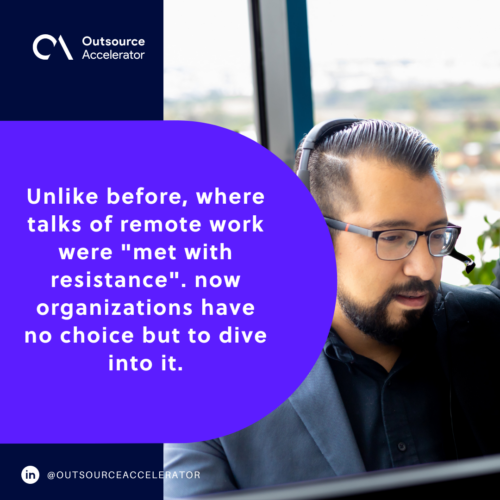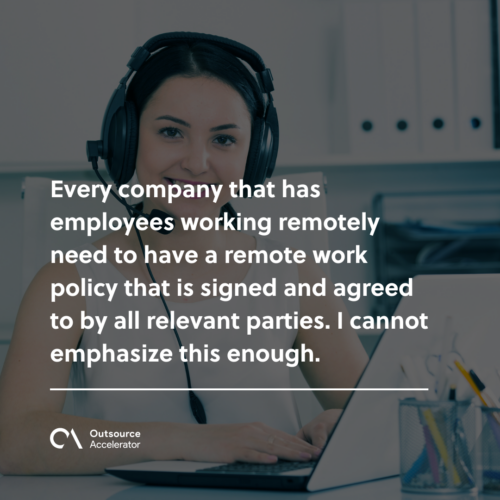The Remote and Distributed Workforce Movement with Laurel Farrer

About Laurel Farrer
Derek Gallimore interviews Laurel Farrer, remote work strategist and CEO of Distribute Consulting. They offer advisory services to businesses who would like to transfer to remote work. Laurel is also a contributing writer at Forbes specializing in remote work and distributed workforce.
Most companies have been shifting to remote work especially in the new normal. In this episode, Derek and Laurel discuss remote working and digitizing the workforce. They tackle how companies like L’Oreal and WordPress manage working remotely and the future of working.

Remote work with Laurel Farrer
Laurel has been an advocate of remote work, as she has been working remotely and operating remote-friendly companies for 15 years. At the time, Laurel admits that the sector “certainly didn’t have this language of virtual organizational behavior.” Then, the concept of remote work was just “trying to be flexible and adaptable and being resourceful” then it evolved as a business option.
Fast forward to today, Laurel is now the CEO and Founder of Distribute Consulting, an internationally renowned management consulting firm. She started as an independent contractor and consultant answering questions for businesses about how to operate without an HQ office. Now, Laurel said she’s “absolutely honored to lead an incredible team of other remote work experts around the world.”
Remote work in the midst of COVID-19 pandemic
Laurel is truly optimistic about the continued acceptance and adoption of remote work. In the past 15 years, she noted that the sector’s evolution “has been quite fascinating.” Before, she recalled that there is no way that they would have been considered a credible business if they did not have any real estate investments, or a storefront of some kind. Physical offices signify the stability of companies.
However, the COVID-19 pandemic is absolutely helping businesses embrace change in the workplace. Unlike before where talks of remote work were “met with resistance,” now organizations have no choice but to dive into it.
In order to do remote work successfully, companies need to have a remote work policy that is signed and agreed to by all relevant parties.
Varying employer obligations due to geographical differences
Remote work means that employees are working in different countries around the world, or varying cities across a country. This means different labor laws and regulations. According to Laurel, it’s going to take “a long time” for legislation to catch up, per country, per state, per city. There’s so much to do in terms of taxation structures, employment laws, and Occupational Safety and Health Regulations.
Every organization that is planning to have their employees work remotely will need a very comprehensive document about what is required from everybody to make this work.
This document will need to answer the following questions and concerns:
- What are the hours that employees are expected to be working?
- How is employee performance going to be measured?
- What are environmental expectations of background noise?
- Who is responsible for payment and compensation of equipment expenses, and internet costs?
- Is an employee going to be discriminated against if they don’t have a fast enough internet speed at home?
- If there is a child crying in the background, is that going to affect their perception or their reviews at work?
Laurel noted that employers also need to find ways to protect themselves, as much as they try to protect their workforce. There are so many needs to be considered as we wait for legislation to catch up. This is why it is so essential to work with an expert or a consultant.

To learn more about Laurel and Distribute Consulting, feel free to visit their website at https://www.distributeconsulting.com/







 Independent
Independent




